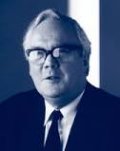
By: James G. Apple, Editor-in-Chief, International
Judicial Monitor and President, International Judicial Academy
It does not frequently happen that a law professor or
practicing lawyer produces even one seminal written work in his or her field during a
lifetime, especially the kind of work that is influential over a period of 30
to 40 years. Sir Ian Brownlie, who died a tragic death in an automobile
accident in Egypt in 2010 while vacationing with his family, produced two such
books, both on international law and both of which are now classics. One,
International Law and the Use of Force by States, was written first as his
doctoral thesis and published as a text in 1963. The second, Principles of
Public International Law, now it its 7th edition, was first
published in 1966.
Ian Brownlie was both a distinguished academic and a
distinguished practitioner of international law, at different stages in is
career. In his obituary that appeared in The Guardian, written by Philip Sands,
QC, himself an eminent international lawyer, he was justly described as “one of
the world’s leading international lawyers, making his mark in both litigation
and scholarly writings.”
Brownlie was born in Lancashire, England on September 19,
1932. He was the son of an insurance company employee and attended high school
in Liverpool. He was too young to serve in the military during World War II.
While still living in Liverpool he was exposed to the German nightly
bombings of that
city, which perhaps explains his life long anathema to the use of force by
nations.
Upon graduating from high school, he was awarded a
scholarship to Hertford College, Oxford. Two significant events occurred while
he was at Oxford. He won the Vinerian Scholarship and graduated with first
class honors. The Vinerian Scholarship is a scholarship given to the University of Oxford student that
"gives the best performance in the examination for the Degree of Bachelor of Civil Law." After
Oxford he studied for his Ph.D. degree during a tenure at King’s College,
Cambridge. It was during this period that he joined the Communist Party. He
later left the CP after the Soviet invasion of Czechoslovakia in 1968. While at
Cambridge he was a member of a very select group of students studying under Sir
Robert Jennings who gathered for monthly evening seminars with Sir Robert and sometimes
Sir Hersch Lauterpacht. The group included Hans Blix, Stephen Schwebel, Ted
Meron, Rosalyn Higgins and Hisashi Owada, all of whom have made recent
significant contributions to international law.
After earning his doctorate at Cambridge, the subject of his
thesis being the use of force by states, Brownlie was called to the Bar by
Gray’s Inn in 1958. He then moved into academic life as a professor, first at
the University of Nottingham and then Wadham College, Oxford, where he became a
Fellow and Tutor in Law. In 1976 he moved to the London School of Economics
under an appointment as professor of international law. In 1980 he moved back
to Oxford where he held the Chichele Chair in Public International Law at All
Souls College. The same year as his appointment to the Chichele Chair he was
made a Distinguished Fellow at All Souls College. His tenure in such
distinguished academic posts is at odds with his intentions for a career when
he graduated from high school in Liverpool. When asked by the headmaster of the
high school about his future career plans, he replied “Not teaching.” Brownlie
remained linked to academe until 1999 when he retired from his academic posts,
although he returned to All Souls College in 2004 as a Distinguished Fellow.

 International
Judicial Monitor
International
Judicial Monitor